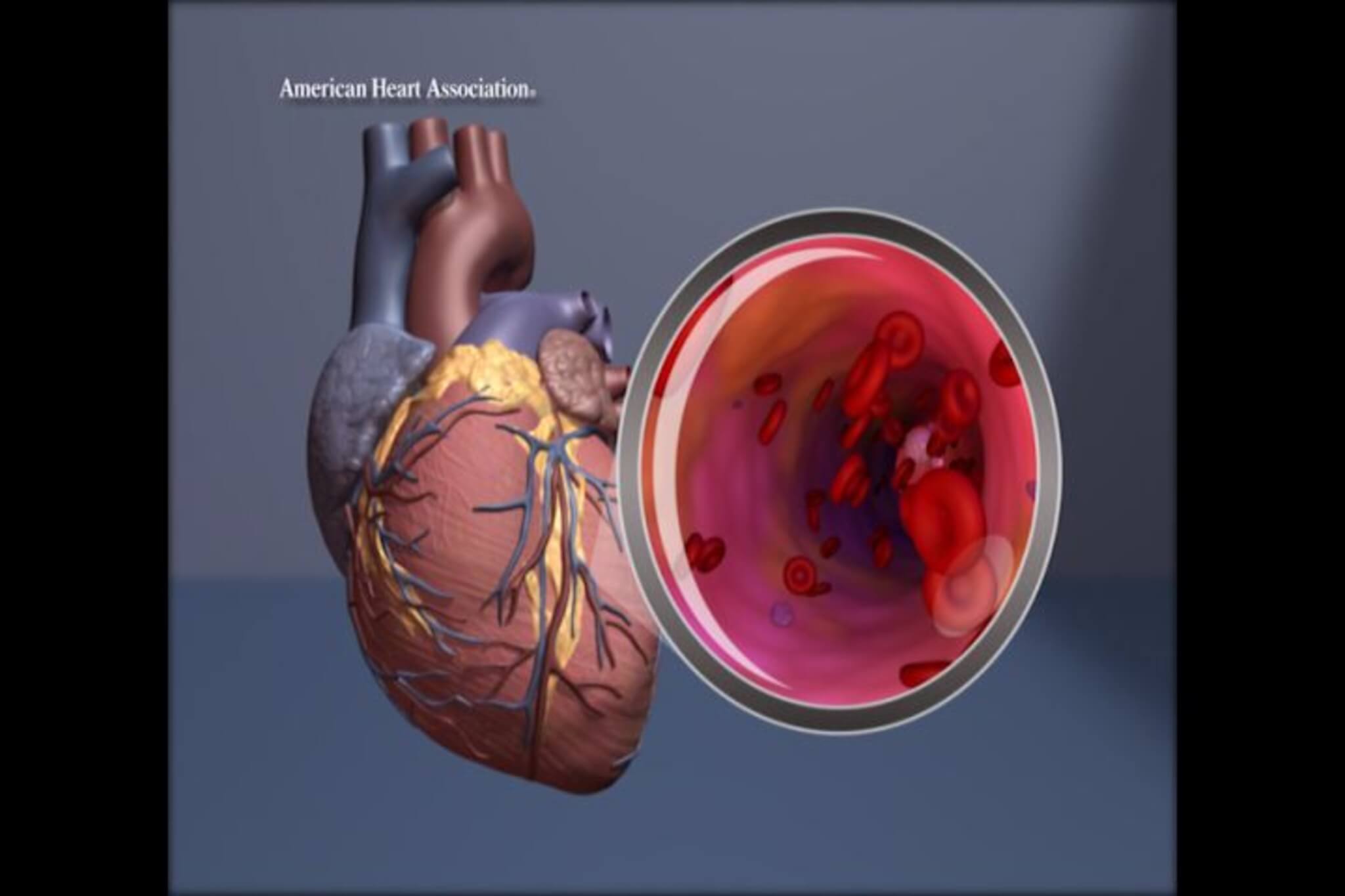Heart disease is the number one cause of death in the United States. In the last few decades, though, with advances in the prevention and management of coronary artery disease, the occurrence of heart attacks in older adults has been declining.
Alarmingly, the occurrence of heart attacks and other forms of heart disease among younger adults (ages 20 to 50) is increasing. The increase in cardiovascular problems in this group, in 2020 and 2021, was so great that it contributed to declines in life expectancy.
So, what’s causing this disturbing trend? There’s evidence that these heart conditions are the consequences of poor food choices and lack of exercise. Here’s what to know about the signs of heart disease, what to look for, and what to do to avoid the largely preventable fallout resulting from unhealthy habits:
Heart attacks (myocardial infarctions) occur when the heart muscle is deprived of oxygen. Usually, the cause is partial or complete blockage of blood supply to some part of the heart. Symptoms in younger adults are the same as those in older adults, including chest pain or discomfort, which may radiate into the arms, jaw, neck, or back, shortness of breath, and weakness or feeling faint.
Other forms of heart disease include cardiomyopathy (thickened heart muscle), irregular, abnormal heart rhythms, and heart failure.

Research published in the American Journal of Medicine in 2019 assessed more than 2,000 young adults hospitalized for heart attacks from 2000 through 2016. The study found that 20 percent (1 in 5 people) occurred in patients 40 years-old or younger. These patients had the same risk as older adults to die from another heart attack, stroke, or other condition.
The increasing prevalence of heart disease is greater in young women than in young men. The women are more often Black, and have a history of diabetes, chronic kidney disease, high blood pressure, or a previous stroke.
Research shows that healthcare providers are prone to not taking the signs of heart disease in women as seriously as in men. They often pay less attention to managing risk factors, especially by prescribing fewer risk-reducing medications, according to a 2019 study in the journal Circulation.
The biggest risk factors for young adults
People are developing risk factors for heart disease earlier in life. Most younger adults who developed heart problems were thought to be in generally good health before their heart attacks. They were found, however, to have at least one condition which had put them at risk for a cardiac event. The greatest risk factors are:
There may be some genetic influences contributing to these conditions. Most, however, are the consequences of harmful lifestyle habits, which often start during childhood, says Eugene Yang, chair of the American College of Cardiology Prevention of Cardiovascular Diseases Council. Tobacco, cocaine, marijuana, and alcohol use also increase the risk of heart attacks in younger adults.
COVID-19 has its own way of contributing to heart disease. It triggers the body’s inflammatory response, making blood thicker and stickier. Blood clots can form, clogging arteries and causing heart attacks. In 2022, The Journal of Medical Virology reported that heart attack deaths rose 14 percent during the first year of the pandemic. The greatest increase occurred in patients between the ages of 25 and 44. Why there was such a change in this age group is still unknown.
Research shows that about half of people under age 45 don’t think they could be at risk for heart disease. It can be a tough job to convince younger adults about heart disease and risk factors when they’re still focused on building careers and establishing families.
Life’s Essential 8 can save young adults
The three “P”s for reducing heart disease in younger adults are prevention, prevention, and prevention. The American Heart Association recommends following eight lifestyle habits they call “Life’s Essential 8”:
- Healthy diet
- No tobacco
- Regular exercise
- Sufficient sleep
- Weight management
- Watch cholesterol levels
- Monitor blood pressure
- Follow blood sugar levels
So, young readers, make having a primary healthcare provider one of the features of the map you’re creating to navigate life. Check in with that provider at least once a year, or as recommended for you individually. A family medicine provider can care for everyone in the family.

The comments here are predictably shallow. People didn’t start getting vaccinated in large numbers until April/May 2021. This started happening a full year before the vaccinations and are probably due to COVID and the shutdowns that led to less exercise/poor diet.
Even without COVID people are now eating out more often. For the first time in US history the average American is eating out more than cooking at home. 54% of millennials report eating fast food a few times a week, with 23% consuming it daily. 20% of males report eating fast food every day, while only 7% of females report eating fast food daily.
It’s not complicated, use your brain.
Baaaaaaaaaa!!!! 🙄
Not one of those factors has immediate effect .. it is like blaming cigarettes for lung cancer in kidd. Doesn’t happen. The experimental vaccines were rolled out fast, hard, and universally.
Not one of those factors has immediate effect .. it is like blaming cigarettes for lung cancer in kids. Doesn’t happen. The experimental vaccines were rolled out fast, hard, and universally.
You’re a brainwashed loon. Certainly don’t remember the MSM Doctors saying poor diet and obesity is the reason that Covid will kill you. They all demanded loyalty and the clot shot. Doctors are rarely right about anything. Avoid the vaccine at all costs. Good hygiene, good diet, good physical health habits and proper sanitation is the best defense for 98% of what will kill you.
Then why are so many of these deaths athletes in their prime? Who would be healthier than a young athlete? You think young people swinging through a McD’s is going to cause Myocarditis? Bury your head in the sand you don’t appear to be using it anyway.
Nope.
This is laughable! I’m not sure where you live, but the vax was rolled out in large numbers in 2020 throughout the world. If nothing else, at least in sufficient numbers to start the new death trend among the youth. You almost sound like you work for the FBI/CIA. And we know how honest they are…
per HHS.gov, the covid “Vaccinations in the United States began on December 14, 2020.”
The Covid “vaccines” play a large part in this huge increase in heart disease among younger folks. This will be demonstrated in future years as the numbers continue to increase. This article wasn’t about cancer, but that has also greatly increased among younger people. To deny the link to the vaccine is to ignore the elephant in the room.
Thanks to medical tyranny the lady few years, I don’t trust ANY of them.
Eating Tofu.
It could be a combination of causes, with the Covid jab being a major factor. But here’s something else to consider, especially when it comes to young people for whom mobile devices have been as common as wristwatches and ballpoint pens were to previous generations. From the time they were old enough to leave the house on their own, they’ve been tethered to their phones. What percentage carry their phones in the left breast pocket of their shirt or jacket?
Any article like this that does not investigate the mRNA shots is trash. You can’t even acknowledge the most likely cause? Have the argument!
Medical establishment has lost all credibility. You cannot trust anything now. There is no honor among thieves and doctors.
It is intellectually dishonest of the authors to not mention the covid “vaccine” as an inciting factor
Conveniently big pharma is rolling out new meds for heart disease and strokes. If you can’t see the evidence in front of your face and you still have faith in big Pharma and deep state. Your faith is misplaced, consider seeking Jesus. Roll your eyes curse me call me an idiot, I’ll say a prayer for you.
Thirteen people in my social circle got very sick within eight months after getting their shots. One was a triathlete who died from a blood clot to his heart while competing, and another died of pancreatitis and he did not drink alcohol.
The remaining eleven people have heart problems (from open heart to needing meds for life), melanoma, damaged male member (shrinking), vision problems, miscarriage, slipped platelets to name a few malodies.
When I read the Pfizer approval request documentation, which contains the hundreds of possible adverse effects, pancreatitis, heart problems, vision problems, slipped platelets, miscarriages, and an increase in skin cancer are listed.
This is not a coincidence, I am not shallow, and thirteen of my friends/acquaintances sick at the same time tells me everything I need to know.
Agree with all the comments as the article did not accurately portray the timing of all of these heart conditions, but disagree with all of the comments above that it is relate to the vaccines. It is not – is a direct symptom of COVID. Many people who experienced COVID before vaccine became available have these heart issues. COVID affects the heart. It is likely both the US and Chinese governments knew this, and why the lockdowns were so strict. The vaccines help to prevent the real sickness of lungs, but there will be no vaccine for the effects COVID has on the heart unfortunately.
Good lord, is this a joke? NO mention of the myocarditis, pericarditis, cardiac arrests and other adverse events reported, even minimally in VAERS and by prominent cardiologists like Dr. Peter McCullough and Dr. Aseem Malhotra?
The JAB!
In Vermont there were no excess deaths in the 15 – 54 year age group in 2020 when the vaccine was ravishing the elderly. The baseline for heart disease deaths for all age groups was about 1350 per year. There was only a slight elevation in that rate in 2020. However, beginning in 2021 with the vaccines there has been a precipitous rise in the heart attack rate every year in our vaccine compliant little state. This past year 2023, heart related deaths exceeded 1800 per year. I challenged our Health Dept. to include the Ryan Cole protocols in all autopsies to differentiate between the VAX spike and the spike from COVID. No response. They won’t look because they know what they will find.
I believe you are correct in suspecting the covid jabs. In the words of Tom Cruise’ you can’t handle the truth!” The ramifications of facing the truth are too great-emotionally, professionally, politically, legally.
You are correct.
COVID, I know people who had strokes after taking the vax. One had a stroke and aneurysm at the same time. She almost died but survived.